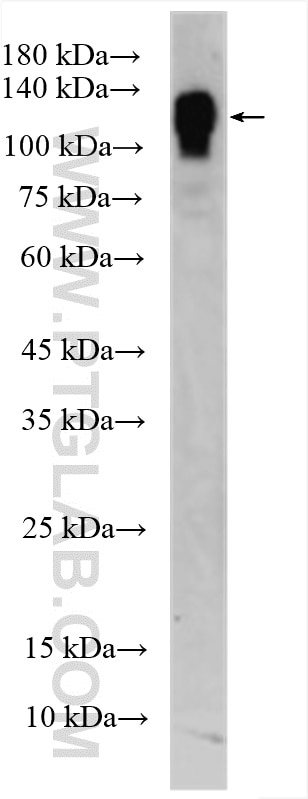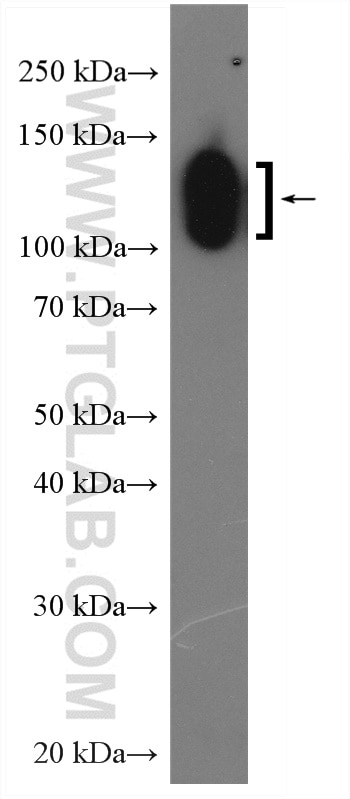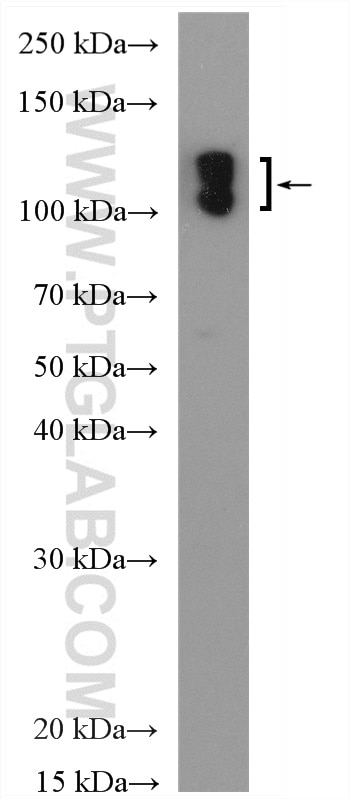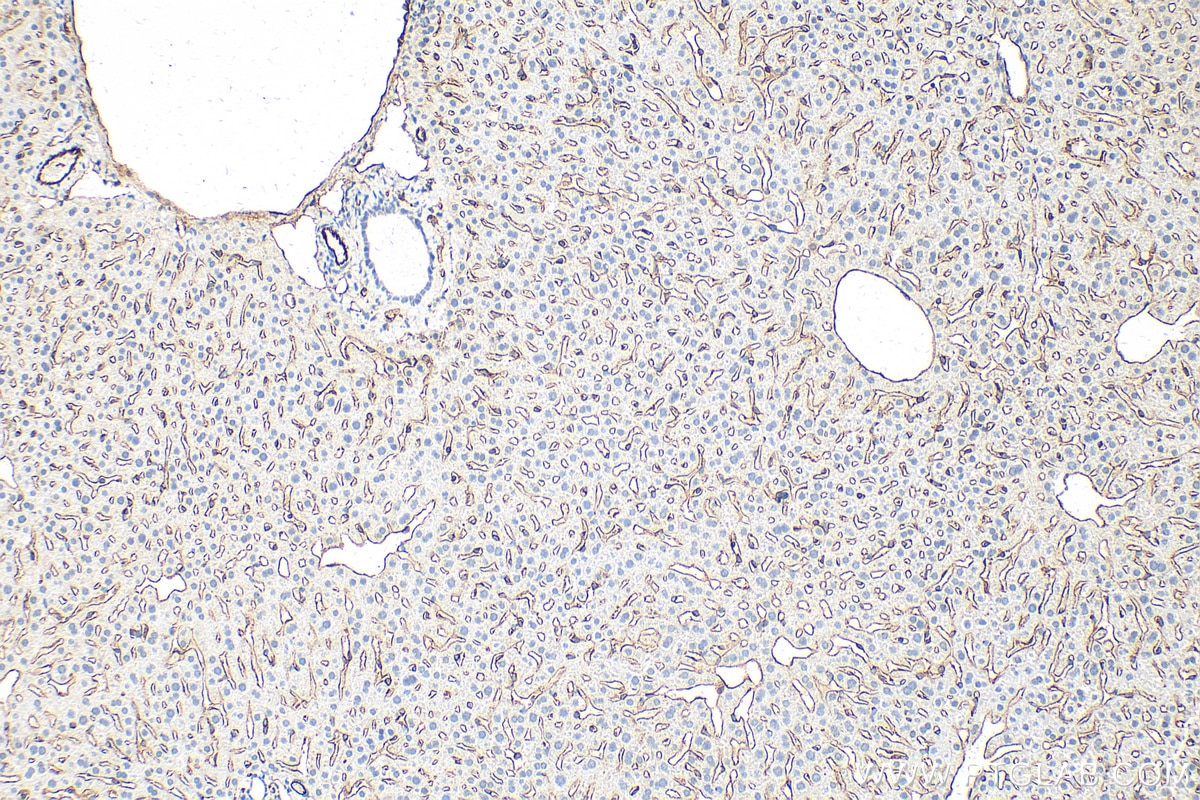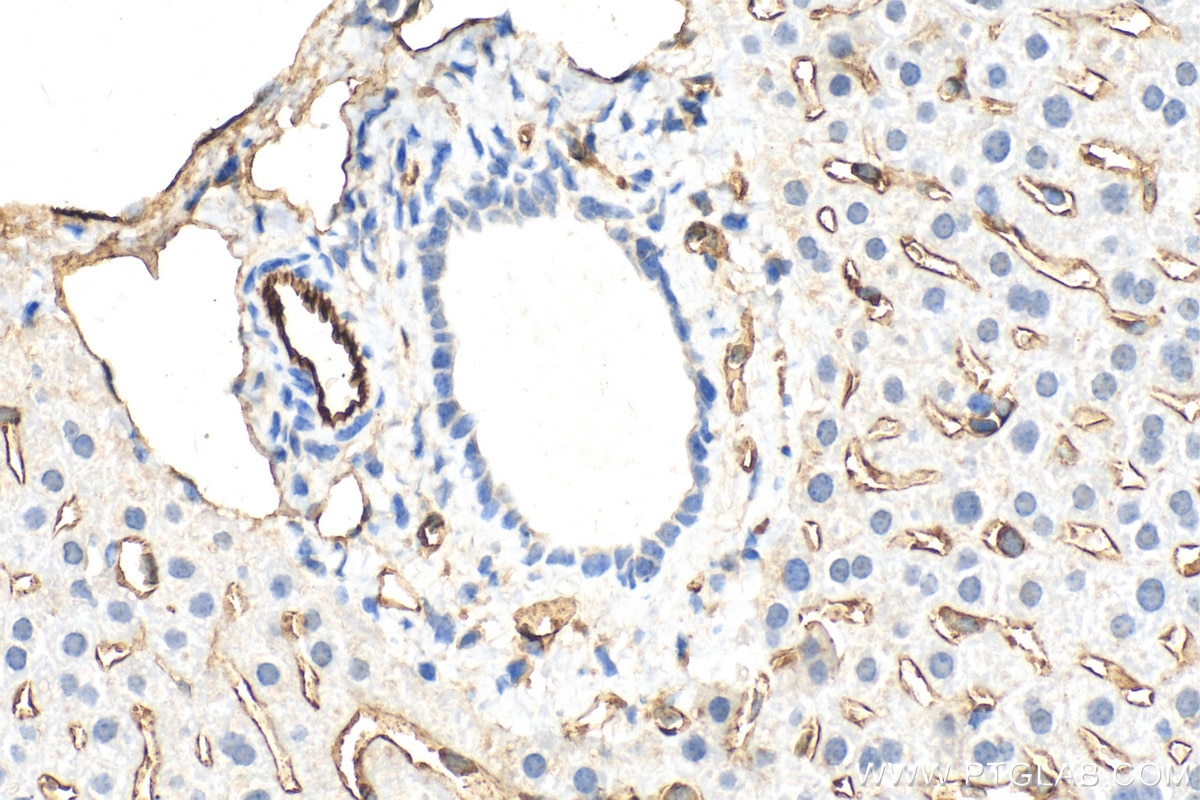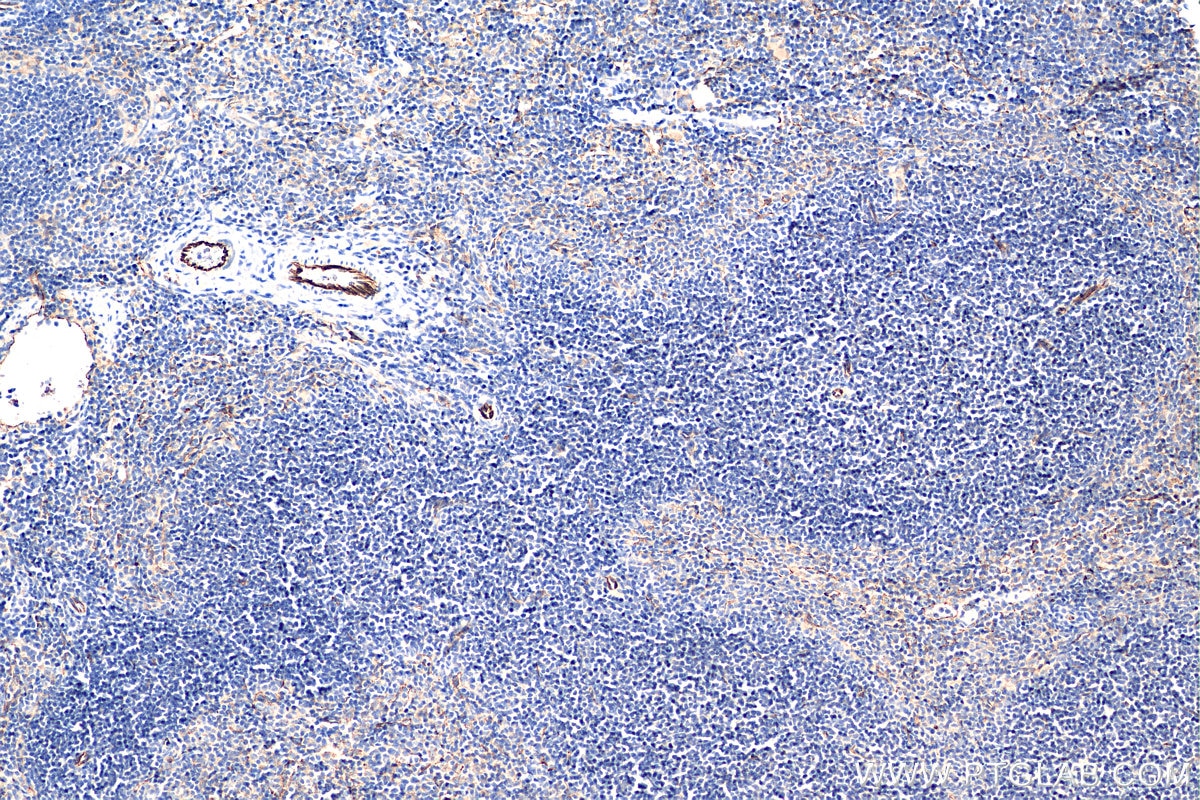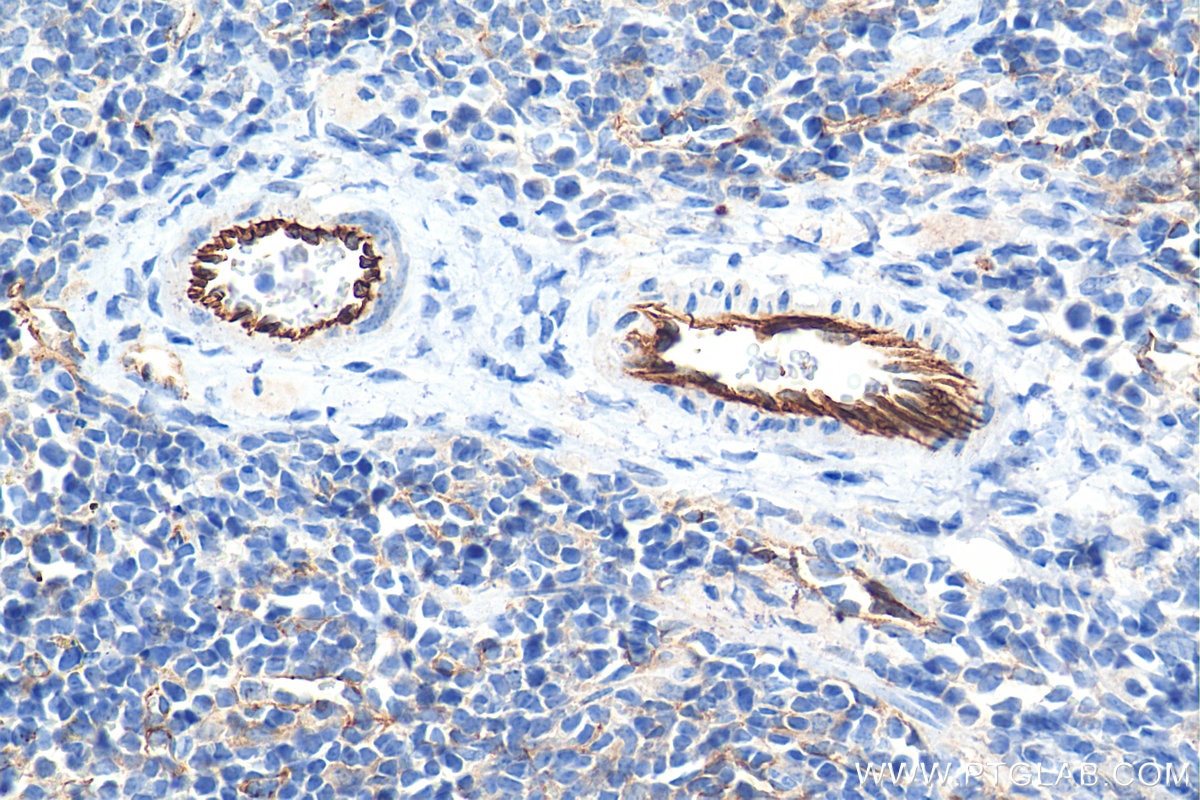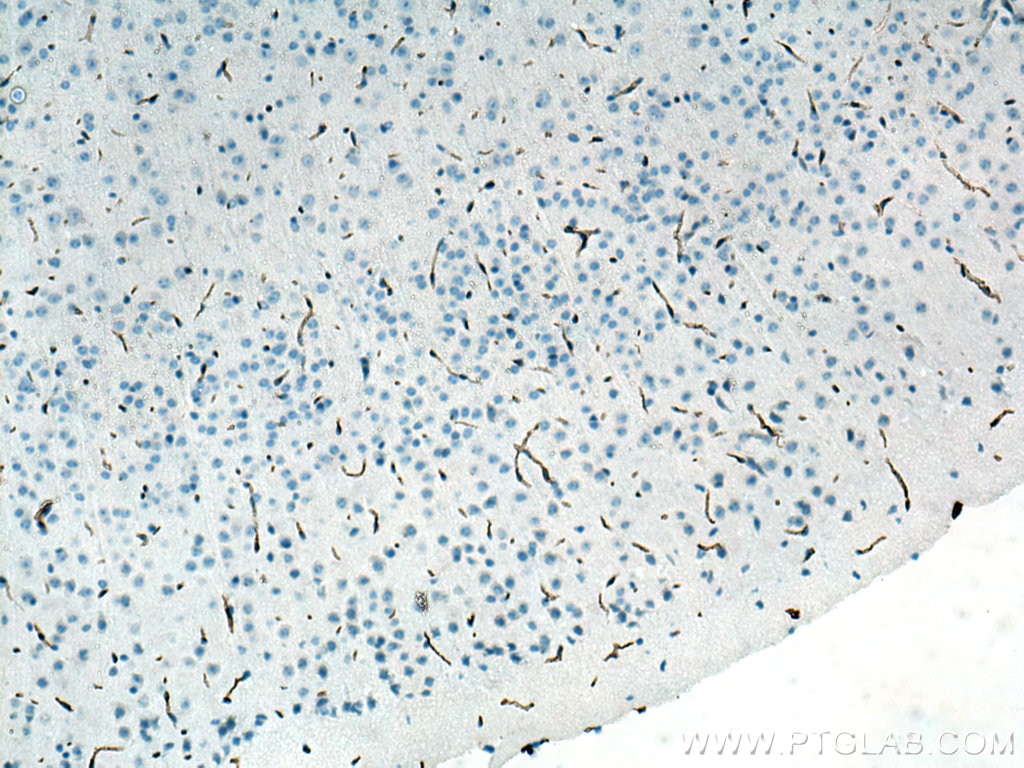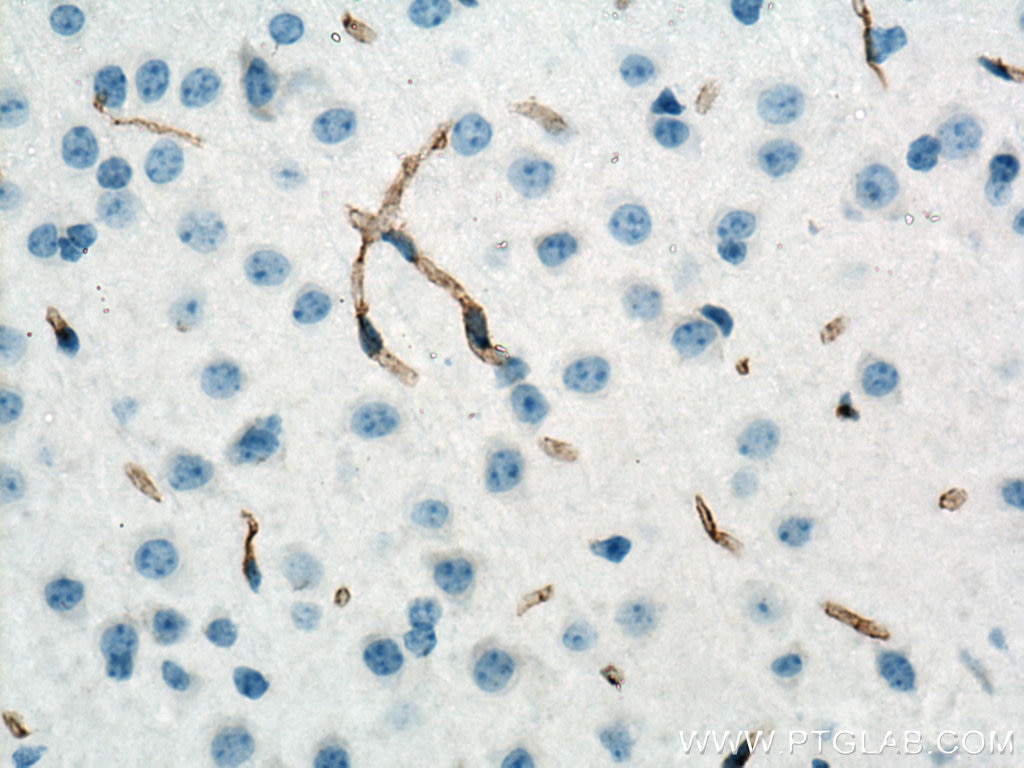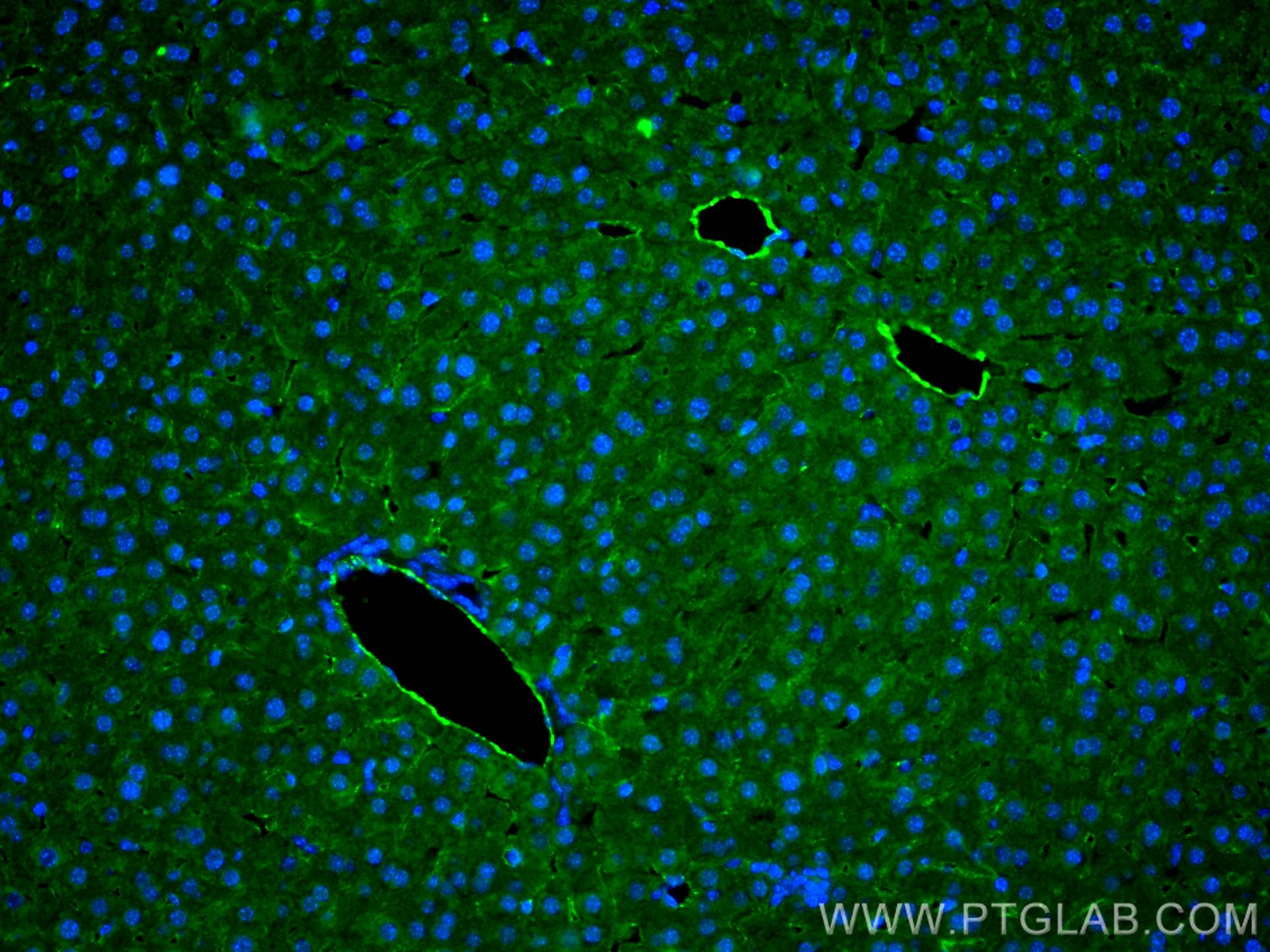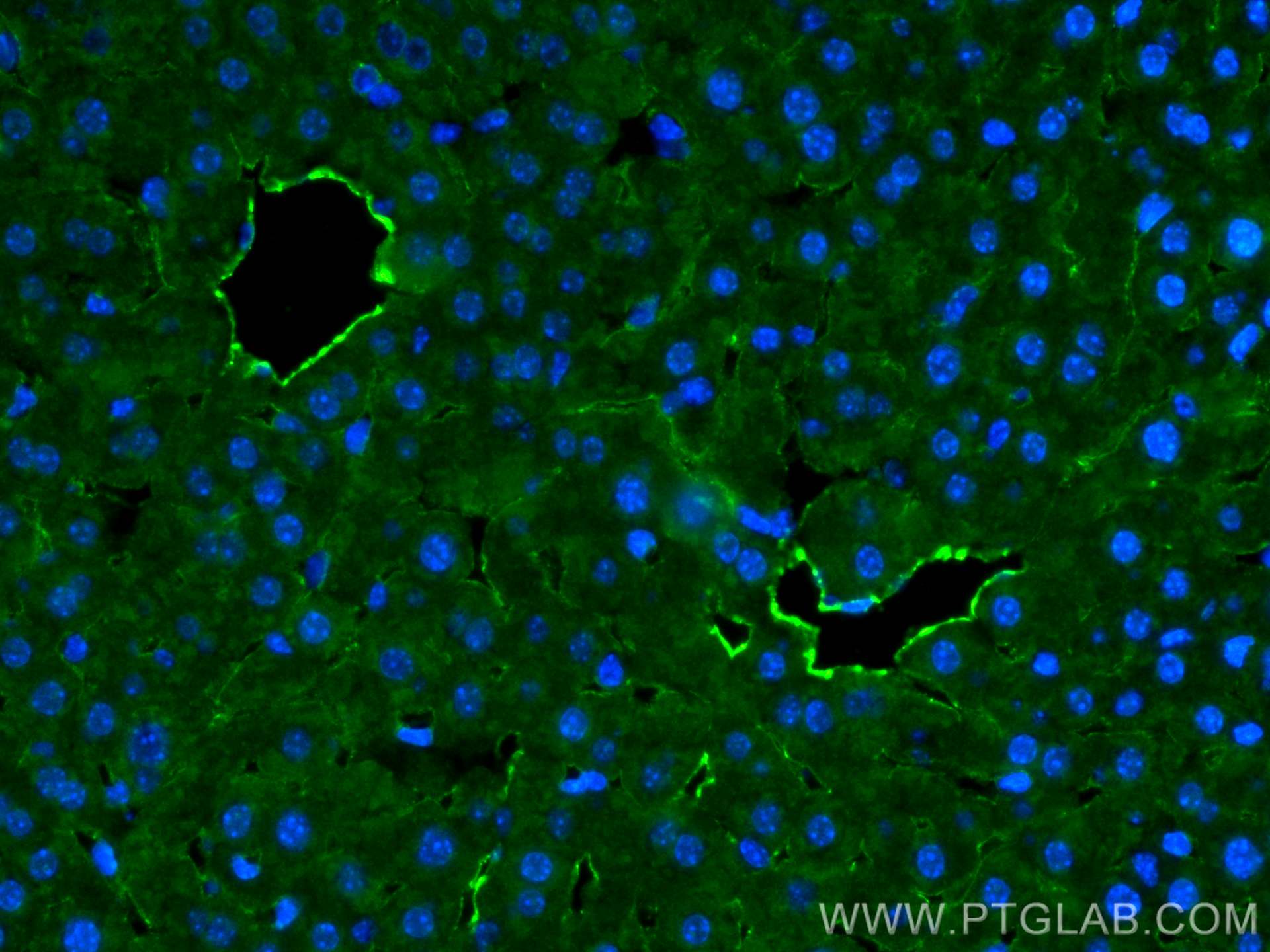CD31 Polyklonaler Antikörper
CD31 Polyklonal Antikörper für IF, IHC, WB, ELISA
Wirt / Isotyp
Kaninchen / IgG
Getestete Reaktivität
Maus und mehr (2)
Anwendung
WB, IHC, IF, FC, ELISA
Konjugation
Unkonjugiert
Kat-Nr. : 28083-1-AP
Synonyme
Galerie der Validierungsdaten
Geprüfte Anwendungen
| Erfolgreiche Detektion in WB | bEnd.3-Zellen, Mauslebergewebe, Mausmilzgewebe |
| Erfolgreiche Detektion in IHC | Mauslebergewebe, Maushirngewebe, Mausmilzgewebe Hinweis: Antigendemaskierung mit TE-Puffer pH 9,0 empfohlen. (*) Wahlweise kann die Antigendemaskierung auch mit Citratpuffer pH 6,0 erfolgen. |
| Erfolgreiche Detektion in IF | Mauslebergewebe |
Empfohlene Verdünnung
| Anwendung | Verdünnung |
|---|---|
| Western Blot (WB) | WB : 1:1000-1:8000 |
| Immunhistochemie (IHC) | IHC : 1:4000-1:16000 |
| Immunfluoreszenz (IF) | IF : 1:4000-1:16000 |
| It is recommended that this reagent should be titrated in each testing system to obtain optimal results. | |
| Sample-dependent, check data in validation data gallery | |
Veröffentlichte Anwendungen
| WB | See 4 publications below |
| IHC | See 13 publications below |
| IF | See 15 publications below |
| FC | See 1 publications below |
Produktinformation
28083-1-AP bindet in WB, IHC, IF, FC, ELISA CD31 und zeigt Reaktivität mit Maus
| Getestete Reaktivität | Maus |
| In Publikationen genannte Reaktivität | human, Maus, Ratte |
| Wirt / Isotyp | Kaninchen / IgG |
| Klonalität | Polyklonal |
| Typ | Antikörper |
| Immunogen | CD31 fusion protein Ag27828 |
| Vollständiger Name | platelet/endothelial cell adhesion molecule 1 |
| Berechnetes Molekulargewicht | 81 kDa |
| Beobachtetes Molekulargewicht | 110-130 kDa |
| GenBank-Zugangsnummer | NM_001032378 |
| Gene symbol | Pecam1 |
| Gene ID (NCBI) | 18613 |
| Konjugation | Unkonjugiert |
| Form | Liquid |
| Reinigungsmethode | Antigen-Affinitätsreinigung |
| Lagerungspuffer | PBS mit 0.02% Natriumazid und 50% Glycerin pH 7.3. |
| Lagerungsbedingungen | Bei -20°C lagern. Nach dem Versand ein Jahr lang stabil Aliquotieren ist bei -20oC Lagerung nicht notwendig. 20ul Größen enthalten 0,1% BSA. |
Hintergrundinformationen
Platelet endothelial cell adhesion molecule-1 (PECAM-1, CD31) is a member of the immunoglobulin gene superfamily of cell adhesion molecules. CD31 is a transmembrane glycoprotein that is highly expressed on the surface of the endothelium, making up a large portion of its intracellular junctions. PECAM-1 is also present on the surface of hematopoietic cells and immune cells including platelets, monocytes, neutrophils, natural killer cells, megakaryocytes and some types of T-cell (PMID: 9011572). As well as its role in cell-cell adhesion, PECAM-1 functions as a signaling receptor, and is involved in important physiological events such as nitric oxide production, regulation of T-cell immunity and tolerance, leukocyte transendothelial migration and inflammation and angiogenesis (PMID: 21183735; 20978210; 17872453; 20634489).
Protokolle
| Produktspezifische Protokolle | |
|---|---|
| WB protocol for CD31 antibody 28083-1-AP | Protokoll herunterladen |
| IHC protocol for CD31 antibody 28083-1-AP | Protokoll herunterladen |
| IF protocol for CD31 antibody 28083-1-AP | Protokoll herunterladen |
| Standard-Protokolle | |
|---|---|
| Klicken Sie hier, um unsere Standardprotokolle anzuzeigen |
Publikationen
| Species | Application | Title |
|---|---|---|
Nanomicro Lett Gelatin-Based Metamaterial Hydrogel Films with High Conformality for Ultra-Soft Tissue Monitoring | ||
Cell Mol Biol Lett Robo4 inhibits gamma radiation-induced permeability of a murine microvascular endothelial cell by regulating the junctions | ||
Front Immunol "γδT Cell-IL17A-Neutrophil" Axis Drives Immunosuppression and Confers Breast Cancer Resistance to High-Dose Anti-VEGFR2 Therapy. | ||
Front Oncol Hypoxia-Induced LncRNA-MIR210HG Promotes Cancer Progression By Inhibiting HIF-1α Degradation in Ovarian Cancer. | ||
Front Bioeng Biotechnol Investigating the Adipogenic Effects of Different Tissue-Derived Decellularized Matrices. | ||
Front Endocrinol (Lausanne) Comparative Transcriptome Analyses of Geriatric Rats Associate Age-Related Erectile Dysfunction With a lncRNA-miRNA-mRNA Regulatory Network. |
